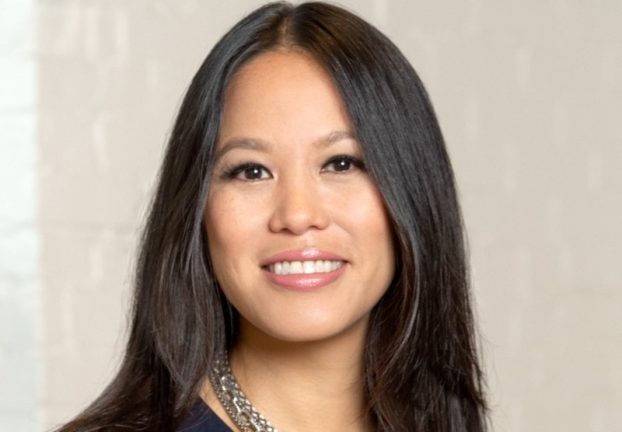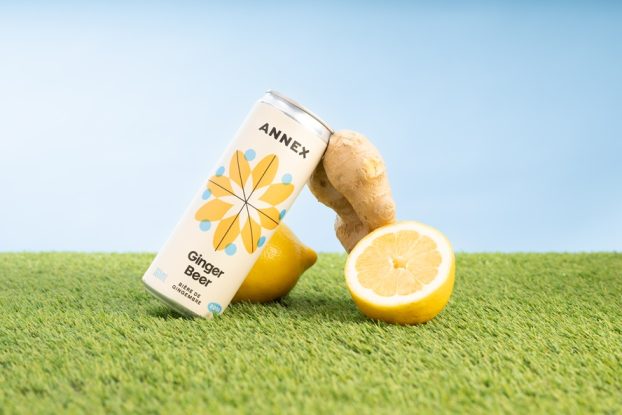In this special report, Strategy takes a look at the Quebec market from the perspective of eight marketers.
They discuss the characteristics specific to their target group and reflect on the values that make the Quebec market distinct.
As well, James Warrington, head of strategic planning at Montreal-based Publicite Martin, provides insight into the Quebec market as a whole.
The report starts on this page with the Warrington overview and continues on pages 26-33, with stories on Chalet Suisse, the Montreal International Jazz Festival, Elle Quebec magazine, the Quebec Nordiques, Television Quatre Saisons, newspapers Le Soleil and L’Echo and Listerine.
French Quebecers have different buying behavior patterns and respond to different advertising approaches than the rest of Canada, according to a top executive with a Montreal ad agency.
James Warrington, vice-president of strategic planning and client services at Publicite Martin, says companies that have separate marketing strategies in place for Quebec get back dividends that far exceed the additional investment.
Only way
Warrington says this is the only way to succeed in Quebec – a market driven by positive, cultural values of family, loyalty and pride, with emotional versus rational decision-making, and unique social and community-driven leisure behavior.
He says the differences between the French-speaking province and the rest of Canada are historical and cultural and go well beyond language.
The Quebec-born and -raised Warrington, who spent 11 years on the client side in strategic planning, advertising management and marketing services positions, has been in his current post at Publicite Martin for the past three years and in the agency business for 11 years.
And with experience in marketing 14 categories and more than 70 brands of products and services to Quebecers, he says he discovered a polarity in the francophone lifestyle.
Traditional values
According to Warrington, traditional values such as family and community are much stronger in Quebec.
He says Quebecers believe a career is a priority, but not at the expense of family life and having children.
As well, he says relationships are important to Quebecers, who believe a single person cannot have a satisfying, enjoyable life and who consider marriage without children incomplete.
Women are valued highly within the family unit but francophone Quebecers are against wives working outside the home for reasons other than necessity.
On the other hand, Warrington says there is the ‘joie de vivre’ factor – francophones know how to have fun and want to get more out of life.
He says they do not view themselves as homebodies, and prefer parties to quiet evenings at home.
They are driven by wanting to feel good, while anglophones want to look good.
Warrington says successful regional marketing is rooted in the belief the particularities of the target market must be reflected in marketing communications.
A brief demographic profile of the Quebecer culled from a PMB Print Measurement Bureau survey shows there are more than four million French-language adults in Quebec, with a skew to females.
Population split
They live in large cities or in small towns of less than 10,000.
The number of high school graduates is just slightly below the national norm. In all other education categories, Quebecers are less educated than Canadians living in the rest of Canada.
The labor force is skewed to skilled and unskilled labor, with fewer professionals and self-employed workers than the rest of Canada.
Demographics would indicate products and services usually marketed to upscale consumers would not be important to Quebec, but that is not always the case.
Warrington says you have to bring the emotional response, the desire to feel good, into the equation.
For example, cellular phones are not as popular in Quebec as elsewhere in Canada, but more fully-loaded, luxury and imported cars are sold in Quebec than the rest of the country because options are the ‘feel-good’ aspect of the buy.
French-speaking Quebecers’ household income is lower than the average personal income in the rest of Canada, but Montreal’s average disposable income is higher than in Toronto.
Cash
Warrington says francophones put their trust in cash, owning fewer credit cards and carrying a smaller debt load.
He says shopping is considered more of a pleasure than a chore, with more time spent on this, on average, in Quebec than the rest of Canada.
Quebecers love specialty stores and shop in small boutiques more often than department stores. The incidence of impulse buying is higher in Quebec than elsewhere.
When it comes to fashion purchases, Warrington says the younger segment over-spends, while the older, traditional shopper spends less than its counterpart in other provinces.
Quebecers spend more on personal grooming and will buy premium brands of cosmetics and shampoo. They actively follow fashion trends.
French-speaking Quebecers frequent supermarkets less, about once a week, but spend more per visit than consumers in the rest of Canada.
Specialty stores
Small local specialty stores are used between visits, and consumers are willing to pay a premium price for convenience.
Warrington says the difference in shopping habits has more to do with retailing methods than price or any other factor.
He says Quebecers view shopping as an experience and the store as a brand with an individual personality based on the owner or the owner’s family.
Value and quality come first. Price is secondary and closely linked to perceived value.
French-speaking Quebecers are more quality-conscious, have higher expectations of products, and express low tolerance for those not meeting expectations.
They are more likely to buy expensive brands of wines, liqueurs and imported beer.
Quebecers are brand-loyal. As long as a particular brand is satisfying and makes them feel good, they will not switch.
Brand loyalty makes it hard to introduce new products, or even new blends or flavors of established products into Quebec.
Taste over nutrition
They are less concerned about nutritional values of food and beverages than taste, and are big buyers of sweetened colas and pre-sweetened cereals.
Francophone leisure habits also differ significantly.
They seldom entertain at home or go to movie theatres, although major u.s. movies dubbed into French do well.
Quebec has a higher level of attendance at live theatre performances and concerts than other provinces.
The ‘joie de vivre’ factor shows up in restaurant use.
Quebecers dine out frequently, make it more of an occasion, and spend more money than their counterparts in the rest of Canada.
They are more likely to frequent quality restaurants than family-style outlets, but also visit fast-food restaurants several times a week.
French Quebecers are heavy media consumers whichi is not surprising given their desire to retain cultural and language identity.
They spend 26% more time with daily newspapers than other Canadians and more than one-third of magazine readers read more than eight magazines per month.
Quebecers are also heavy radio listeners, usually 17 to 33 hours per week.
More than one-third of francophones watch more than 33 hours of tv per week, compared with only 30% in the rest of Canada.
French-language programming is preferred and nine out of 10 of the top tv programs are Quebec-produced. Pay-tv is not as popular as in other provinces because programs are in English or dubbed.
In 1989, Montreal-based Processus Marketing conducted a series of four surveys of 3,000 French-speaking Quebecers.
The results showed message recall scores of 74% to 76% for tv commercials specifically created for the French viewer, versus 11% and 17% respectively for messages from outside Quebec, usually dubbed.
Warrington says French-speaking Quebec consumers react positively to a blended advertising appeal. Lifestyle and image persuasion is more successful than hard benefit portrayal.
Advertising claims such as ‘new and improved’ also have greater credibility in French Canada.
Because francophones are driven to have fun, Warrington says use of humor in advertising can work wonders. Slapstick humor is alive and well in Quebec.
He says traditional benefit advertising will work, but the addition of an emotional quotient, such as local flavor or a local celebrity, will ensure a successful campaign.
Recognition of the pride in the Quebec culture is a small thing, but it will bring big results.
Says Warrington: ‘In the end, to understand the French Quebec psyche is to recognize the paradox of a people and a market with a host of differences in an environment of constant cultural and economic pressure to conform as consumers.’























